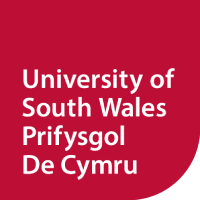About the Project
Deadline: Midnight 22nd January 2017
This project provides an excellent opportunity for the successful candidate to use their knowledge of health related research to research and develop health care service delivery to hard to reach groups in the South East Wales convergence area. The project is co-sponsored by Aneurin Bevan University Health Board.
Heart failure prevalence is increasing but life expectancy and quality of life is worse than those found in many common cancers despite recent treatment advances. Cardiac rehabilitation (CR) reduces mortality and morbidity. It is a comprehensive long-term programme of medical evaluation, prescribed exercise, cardiac risk factor modification, education and counselling. CR programmes aim to reduce adverse physiological and psychological effects of cardiac disease and promote health through an active lifestyle with the aim of returning people to productive fulfilled lives. The National Audit of Cardiac Rehabilitation (NACR) works to get patients the best possible health outcomes following a cardiac event to minimise the impact on their usual activity. The 6th NACR 2014 report highlights the major inequity across the UK in CR delivery. The reasons for poor programme uptake and CR adherence include: doctors reluctant to refer, lack of resource, poor access to transport and a dislike of group CR sessions. A 2015 Cochrane Review compared effects of home-based CR programmes with supervised centre-based CR. Benefits regarding coronary risk factors, health related quality of life, clinical events and costs were similar but evidence suggests that home-based interventions attract increased patient adherence. Further enquiry is needed to evaluate the longer term CR effects.
New ways of providing CR for heart failure patients are emerging. ‘ReAblement in Chronic Heart Failure (REACH-HF)’ is an NIHR funded multicentre randomised controlled trial involving the Universities of Exeter, York, Birmingham & USW which has developed a CR self-help manual for heart failure patients and their carers with a view to increasing self-management. This PhD will further evaluate the clinical effectiveness, cost-effectiveness and acceptability of the manual to eligible users in the South East Wales convergence area i.e. Torfaen, Blaenau Gwent and Caerphilly. Using digital health treatment modalities to deliver CR is an exciting development. Using a prospective observational trial an on-line approach has been evaluated on 33 low risk participants. Findings reveal improvement in walking distance and dietary intake, but no changes in exercise behaviour or anxiety and depression. Further trials are required to compare the value of on-line approaches using a range of health outcomes for different patient groups, such as heart failure, when compared to centre-based CR. There are long standing working relationships between USW and ABUHB, which provides an ideal environment for the project.
Eligibility of Student:
To be eligible to hold a KESS studentship, you must:
- have a home address in the Convergence area* (details below) at the time of registration.
- have the right to take up paid work in the Convergence area* on completion of the scholarship.
- be classified by the University as ‘home’ or ‘EU’ for tuition fees purposes, according to the University’s guidelines.
- satisfy University of South Wales’ admissions criteria: see below
*The Convergence area covers West Wales and the Valleys, and is made up of the following 15 local authorities: Isle of Anglesey, Gwynedd, Conwy, Denbighshire, Ceredigion, Pembrokeshire, Carmarthenshire, Swansea, Neath Port Talbot, Bridgend, Rhondda Cynon Taf, Merthyr Tydfil, Caerphilly, Blaenau Gwent and Torfaen.
Qualifications and experience:
Eligible applicants will have:
- A good first degree (2i or higher) in a health/social science/life science related discipline
- Positive attitude to practical and applied research, must be able to work in a self-directed manner and have the inter-personal skills to work with the larger research team and health service users
- Good ICT skills
- Able to work in situations of uncertainty
- Willingness to travel and work in varied locations, including clinical settings
The position is available from April/October 2017
Funding Notes
The project is funded by the Knowledge Economy Skills Scholarship (KESS) programme and will be based in the Faculty of Life Sciences and Education at the University of South Wales. KESS is a programme funded by the European Social Fund (ESF) awarded by the Welsh European Funding Office (WEFO) in the Welsh Government.
The studentship will cover the fees for a 3 year full time PhD programme and pay a stipend of circa £14k p.a. There is also around £3.5k project support costs available for consumables, travel/conference attendance, minor equipment, training (including the KESS Grad School) and conference attendance.

 Continue with Facebook
Continue with Facebook

